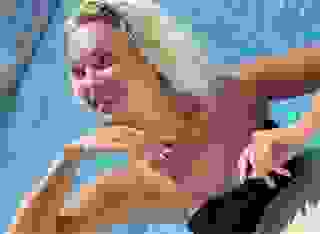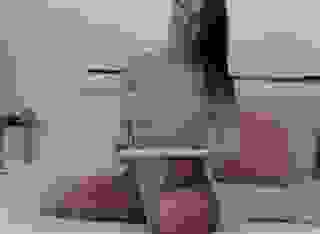- Romance
- A Chuckwagon Ride to Safety
Note: You can change font size, font face, and turn on dark mode by clicking the "A" icon tab in the Story Info Box.
You can temporarily switch back to a Classic Literotica® experience during our ongoing public Beta testing. Please consider leaving feedback on issues you experience or suggest improvements.
Click hereJake Donaldson was starting to doze off when the right front wheel of the chuck wagon rolled over the hole of a prairie dog burrow. That bounced the whole wagon and rattled the pots and pans in the chuck box in back as well as bounced Jake sideways on the seat. Jake shook his head to wake up, moved back to his original position, and kept driving.
It wasn't that he was especially tired. He'd had a good meal and a good rest in Abilene after the cattle had been herded into the holding pens. It had felt good to have an actual meal of a thick steak, fried potatoes, and green beans after the two months of fried bacon and biscuits for breakfast and beans with salt pork for the other two meals of the day. That diet had been broken only twice during the drive, once when the cook had shot a deer and once when a steer had stepped in a hole and had broken a leg. For a few days, Jake and the other cowhands had gorged themselves on fresh meat.
It had felt better to stretch out on a hotel bed for the night instead of trying to find a spot on the ground that wasn't full of bumps. If it wasn't bumpy ground, it was the stalks of plants that would poke him all night long. If it was raining, he laid out his bed roll and hoped the canvas tarpaulin would keep him and his blankets from getting soaked.
Jake hadn't complained about the food or about the fact that for two months and six days, his mattress had been the ground and the roof over his head had been the stars. This was the life he'd chosen after mustering out of the Union Army as a Captain in May of 1866.
Jake had been born and raised in southern Indiana, had walked over much of the South during the four years he'd served, and he'd had enough of the rainy springs, sweltering, humid summers and the cold, wet winters. Rain in the spring was usually heavy, and a company of men on the move quickly churned the earth into a quagmire of mud. Boots that were constantly wet soon rotted away and left a man's feet wet all the time.
Summers were so hot he'd seen men collapse right in the middle of a battle from heat stroke. Winter was like spring except it was colder. On a windy winter day the damp, cold air seemed to slice right through clothing and leave a man shivering.
After the war ended, some units of the Union Army were sent to Texas to confiscate the land for the Union and to keep order until Texas could fulfill the requirements for rejoining the Union. Jake spent almost two years on the eastern side of Texas doing that, and what he saw was acres and acres of land that was fit for farming or grazing cattle.
Farming cotton had been profitable before the war because of the slave labor, but now cotton meant a lot of hard work what with plowing the fields, planting the seed, weeding the crop and then picking the cotton bolls one at a time. Cotton was selling well, but the beef market was much more profitable. There were few expenses involved other than buying the land and stock. Once a man had those, all he had to do was keep the cattle on good range with good water. Once a year, each cow gave birth to a calf that could be sold a year later for beef in Missouri or Kansas for ten times what that same calf was worth in Texas.
Jake mustered out after a year and a half in Texas, and as soon as he got his mustering out pay, Jake bought a horse and saddle and started looking for a job as a cowhand so he could learn how cattle were raised in Texas. He found work on a ranch near Waco and discovered he loved the life. This had been his fifth drive up the Chishom Trail to Abilene, this time with five thousand head and twenty other cowhands to herd them along.
Once the team pulled the chuck wagon out of the hole, the wagon settled back down into a steady rocking motion and the clack-clack as each wheel slipped in and out on it's axle. The right rear sounded a little dry, and Jake made a mental note to grease all the wheels before starting out in the morning.
The chuckwagon was a Studebaker wagon built in South Bend, Indiana that had formerly served the Union Army as a freight wagon. The cook box had been added once the wagon was purchased from the Union Army when it began selling off surplus equipment after the war. As the cook had said, a Studebaker wagon was built to run to hell and back as long as you kept the wheels and fifth wheel greased. That had proved to be true. This same wagon had made the five hundred mile trip for four years and had yet to break down.
Normally, the cook would have driven the wagon from Abilene back to the ranch. The unwritten rule of any cattle drive was the cook owned the chuck wagon and everything in it, and it was his responsibility both on the drive as well as his responsibility to get it back to wherever the drive started. Old Nate Jacobs, the real cook, had found a woman in Abilene and decided to stay. Somebody had to take the chuck wagon back, and Jake figured he was the logical choice. He'd never been one to drink whiskey and visit the houses of loose women like most of the cowhands did.
He couldn't blame the other men, really. A cowhand's life was pretty similar to being in the Army. There was always work to be done on a ranch and the cowhands did all the work from bringing the herds in to brand all the calves and castrate the bull calves to treating sick cows to breaking in new horses. Rain or shine, there was always something to do and they couldn't refuse. Their livelihoods depended upon getting as many cattle to the market in Abilene as possible.
That work started with rounding up and driving that year's marketable cattle to Abilene. The drive started around the middle of May to the first of June, depending upon the weather. It had to be when the creeks and rivers were running full and the grass was tall enough to feed and water the herd as they made the trek. Starting too early would mean the cattle wouldn't have enough grass to eat and they'd lose a lot of weight before they got to Abilene. Starting too late would mean the same except they'd also lose cattle to the heat and lack of water.
It was boring work, just riding along with the herd and rounding up any stragglers or cows that for some reason known only to cows decided to take a different route. The pace was agonizingly slow for men accustomed to action. The cattle couldn't be pushed very hard or they'd lose the weight that determined how much they sold for. The herd usually made only about eight or nine miles a day, sometimes less if it was too far to the next water. They traveled from sunup to sundown every day, rain or shine. At night some of the cowhands rode around the herd in shifts while the others slept.
During the day, some of the men were lucky enough to ride on the sides of the herd. They kept the herd together and going in the right direction. The men riding behind the herd had it the worst. If it was wet, they rode in the mud churned up by the herd. If it was dry, they choked on the dust kicked up by thousands of hooves.
When the cowhands returned from the drive, they had more hours and hours of hot, dirty, sweaty work until winter. Jake could forgive them for taking advantage of the only time during the year when they could get off a horse and have a little entertainment.
Jake figured the rest of the crew would have had their fill in about a week and then start back to the ranch. They'd be traveling faster on horseback than he was in the wagon, but he'd still beat them back by a few days because he wasn't backtracking down the Chisholm Trail.
The Chisholm Trail was laid out so there was about a day's travel between places with good grass and water. That meant it meandered a little depending on where the nearest stream or river was. It also had to be wide enough for a herd to travel without them getting lost in a bunch of trees.
Jake was driving a straighter route across country. The ride was a little rougher and grazing and water were farther apart, but he had grain and forage for the horses in bins on the side of the chuck wagon, and water in a barrel on the other side. His shortcut would take about four days off his travel time.
There was another reason Jake wasn't going back down the trail. There were cattle rustlers who might attack a herd going up the train, but usually they weren't successful. Every cowhand carried a Winchester 1866 rifle in a saddle scabbard under his right leg, and they were good shots. Twenty cowhands with Winchesters were more than a match for a handful of rustlers. Several also carried Colt or Remington revolvers in holsters on their side as well.
Coming back down the trail was a different story. A few of the former bushwhackers had formed gangs and embarked upon robbery as their occupation. Most concentrated on banks and trains, but a few gangs of two or three men patrolled the Chisholm Trail for returning cowhands. Those cowhands had been paid in Abilene and even if they didn't have much money left, they had guns, horses, and saddles. It was easy for the gang to slip up on a couple cowhands traveling by themselves and take everything they had, including their lives if the cowhands tried to resist.
Jake wasn't afraid of a couple men. During the war, he'd become an expert shot with the Remington revolvers on the wagon seat. After leaving the Army, he'd become just as good with the Winchester 1866 leaning against the front of the chuck wagon and the Greener 10 gauge coach gun on the floor under his feet. By not traveling where those men might be, he avoided any confrontations that might require him to use them. He figured he'd done enough killing during the war to last him a lifetime and then some.
Jake had been traveling for three days when he stopped at a small creek to water the team and his saddle horse and have a bite to eat. He saw a sod house about a hundred yards away on the other side of the creek. It hadn't been there the year before, but it didn't surprise him. Regular wood houses as well as soddys were springing up all over this side of Oklahoma Territory and the reason was the war.
After the end of the war, the Union had confiscated the tribal lands in Oklahoma Territory of any tribe that had fought for the Confederacy. He was in former Cherokee territory and there were some Cherokees who had done just that. Those Cherokees didn't trust the Union because it was the Union that had forced them to Oklahoma Territory from Tennessee and other southern states along what they called "The Trail of Tears". When the Confederacy promised them more land and said they would be able to keep the slaves they already owned if they fought for the Confederacy, some of the Cherokee clans had joined them.
Once the Union had taken possession of the land, white and a few former slave homesteaders began moving into those areas. The land was fertile once the sod was turned over by a plow, and the settlers had set about farming corn, cotton, and wheat. The best part was the land was free for the taking. All a farmer had to do was get his family there, build a house, and start farming.
That part of Oklahoma Territory was mostly prairie and there weren't a lot of trees. If they couldn't afford to buy cut lumber, and most couldn't, the homesteaders cut the sod into thick slabs and used the slabs of sod like large bricks to make walls. There was at least one door and a couple windows set into the walls of every soddy to let in light and fresh air.
A few poles and more sod formed a roof that wouldn't leak as long as the grass in the sod was alive. Most sod houses had two rooms, one for sleeping and one for everything else and this one appeared to be the same.
As the team rested and Jake ate some beef jerky, he watched the farmhouse. There was no smoke coming from the chimney, but inside a pole fence was a light riding horse. He would have expected to see a team of heavy horses the man used for plowing and other work, not just one riding horse. He figured the man of the house must be out working somewhere, probably cutting trees along the creek bank for winter firewood since it was too early in the year to harvest field crops. When he thought about that a little more, Jake realized he hadn't seen any field of anything, not even the normal kitchen garden. They would have been close to the house, but all he saw was prairie grass.
Jake was picking up the reins to start his team moving again when he saw two men on horses ride up to the cabin. They tied their horses to the pole fence and then started toward the door of the soddy. They did that casually, like they belonged there. Jake thought that was curious. There were a couple cowhands in the ranch crew that Jake thought spent a lot of time together, but he'd never thought two men would homestead together.
He was still wondering about that when the first man opened the door of the soddy. The man had taken one step inside when there was a loud blast and the man fell back outside. A second later, there was another loud blast and the second man fell down, jerked a little, and then lay still.
As Jake watched, a woman in a man's pants and shirt walked through the door with a double barrel shotgun in her hands. She kicked each man in the stomach hard, and when neither moved, she went back inside. When she came back out, she walked to the pole fence and untied one of the horses and took the rope off the saddle of the other.
She led the horse back to the front of the soddy. After taking the gun belts off both men and slinging them both around her neck and under her arm, she tied the end of the rope from the horse's saddle around the first man's legs and the other rope to the second man's legs. She then backed the horse up until the ropes would reach, tied both ropes around the saddle horn, mounted the horse, and started for the creek where Jake had stopped.
The woman didn't see Jake until she was almost at the creek because most of the chuckwagon was behind some willow trees. When she did see him, she stopped the horse and pulled the revolver from the belt on her left side.
"Who are you, Mister? Another one of them, I 'spect. If you are, I'll shoot you dead just like I did these two. Speak up. That shotgun liked to have deafened me."
Jake raised his hands and smiled.
"Ma'am, I don't know either of these two men and I don't know or much care why you shot them 'cause it's none of my business. I'm Jake Donaldson and I'm on my way back to Texas. I just stopped here to water and rest my horses. You've nothing to fear from me."
The woman looked terrified and her hand holding the revolver was shaking.
"Why should I believe you?"
Jake pointed at the chuck wagon.
"Unless you got different outlaws in Oklahoma than we do in Texas, they wouldn't be driving a chuck wagon, now would they?"
The woman lowered the revolver but she didn't put it back in the holster.
"No, I guess they wouldn't. I still don't trust you though. Why are you going to Texas?"
"Ma'am, I just got done driving some cattle from Texas to Abilene and now I'm on my way back home."
The woman's eyes narrowed.
"If you've been to Abilene, what's the name of the big hotel there?"
Jake grinned.
"Ma'am, you're probably thinking of the Union Hotel. I didn't stay there. It a nice hotel but too expensive for my pocketbook. I stayed at the Silver King Hotel. Wasn't fancy like the Union Hotel, but it was a bed and the bedbugs and seam squirrels didn't chew on me all night."
The woman was still frowning.
"What's the saloon across from the Silver King called?"
Jake shook his head.
"Couldn't tell you that if my life depended on it, Ma'am. I never go to saloons so I never looked for one. If I remember right though, across from the Silver King is a general store and a barbershop."
The woman's face relaxed then.
"I guess you're what you say you are, so I'll let you go now. I'll keep this revolver ready though, so don't try anything. Just start driving and keep on going until you get to Texas."
Jake picked up the reins, but then put them down again.
"Ma'am, you got a husband?"
She frowned again.
"Why do you want to know?"
"Well, these two men are gonna start to smell pretty bad pretty quick in this heat. You need to bury them. I just wondered if you had a man to do that for you. If you don't I could help you."
Her reply was short and harsh.
"Burying is too good for what they are. I'm going to leave them here by the creek for the coyotes and buzzards. There won't be much left to smell in a day or two."
The woman took the ropes from the saddle horn and dropped them on the ground.
"Like you said before, it's none of your business. Now, go on and get going before I change my mind and shoot you."
Jake figured the woman was alone. If she'd had a husband, it would have been him that had killed these two men. It was also odd that a homesteader's wife would know as much about Abilene as she seemed to. Most homesteaders came to Oklahoma Territory through Arkansas and would never have seen Abilene.
Those thoughts raised questions in Jake's mind about the woman. How had she gotten here and why was she alone? Why had those men just walked into the soddy like they owned the place, and why had she shot them? What was she going to do now?
As Jake was thinking, he was also looking at the woman. It seemed odd that she didn't have a husband. She was pretty enough, at least in the face, with blonde hair done up in a bun, and a small nose and a wide mouth. It was pretty hard to tell anything about the rest of her. The trousers and shirt she wore were much too big for her body.
She also seemed to have more than a little confidence in herself. She'd looked scared when she first saw him, but that didn't stop her from drawing the revolver and pointing it at him. Some men might be put off by a confident woman, but Jake knew only confident men with confident women had any hope of surviving in the west. There was basically no law or any other kind of help except in the larger cities, so people had to look out for themselves.
He looked up and smiled.
"Ma'am, if you had a husband, he'd be here instead of you, so my guess is you don't. I can't just drive away, especially since those two men...well, I don't know what they intended to do, but it didn't look like a friendly visit. Didn't look like you thought so either since you shot both of them.
"Any idea about what you're going to do now? I mean, depending on who those men were, somebody may know where they were going and if they don't come back, they'll come looking for them. You probably should be leaving here on your way to somewhere else while you still have time."
The woman shifted a little in the saddle and then frowned at Jake.
"That's easy for you to say. You have a place to go. Where would I go if I decided to?"
Jake thought maybe she was listening for a change.
"Well, Ma'am, in the town close to the ranch where I work, they got a restaurant in the hotel and a general store. You might find something there. If not, and don't think I'm asking for something from you 'cause I'm not, but the Mexican woman who cooks for the ranch owner went and got herself married right before we left on the drive. I expect the owner hasn't found another cook yet and I know he doesn't like cooking for himself. If you can cook, maybe he'd give you a chance.
"Either way, you could ride with me so you'd have a man to look out for you."
Charity Meadows stared at the man who called himself Jake Donaldson and wondered why he wanted to help her. He didn't know her, not at all. If he had, he probably wouldn't have made the offer.
Charity didn't want to accept any offer from any man, let alone one she didn't know. She'd done that once before and look where it had gotten her. She was alone in a house made of dirt that was full of spiders and other bugs and little else. She'd only stopped at the soddy because she thought the people who lived there might give her some food. What she'd found was no one living there and no real food.








